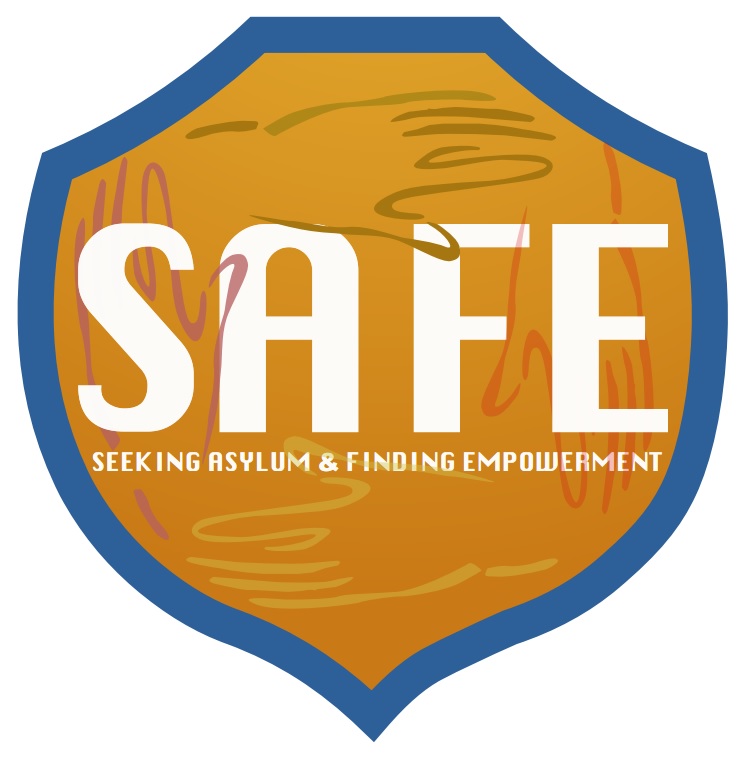Waiting for Freedom
My name is Sofia. I am a disabled lesbian who had to flee violence in Russia. Along with my wife Petra, I am now an asylum seeker in the United States.
Despite having filed for asylum along with my wife over five years ago, we are still waiting for our initial interview.
We now feel we have zero chance of receiving an interview without major intervention. The order in which asylum applicants are interviewed has changed several times over the past few years, but the result is always the same: our application seems to be permanently stuck at the bottom. In 2018, for example, U.S. Citizenship and Immigration Services (USCIS) started hearing cases on a “last-in, first-out” basis rather than the “first-in, first-out” basis it had previously been using. Instead of hearing cases in the order they had been filed, USCIS has given priority to applicants waiting 21 days or fewer. Asylum offices start with newer filings and then work toward older ones. In the five years since we applied, the backlog has grown to more than one million cases.
Since 2018, my wife and I have been living under the shadow of constant stress of not knowing when we can get on with our lives. Being an asylum seeker is a precarious position to be in. It is neither a visa nor any sort of permanent immigration status.
We can live here while our case is pending and have the opportunity, but not the right, to apply for work permits. Every two years, we need to reapply and pay nearly $500 each. Even this process has become unnecessarily stressful as USCIS is taking an extraordinarily long time simply to renew work permits. The last time, we were waiting for seven months, during which time our cards expired. The automated system issuing notices failed to send out a receipt notice to Petra, meaning she had no way to show her current employer that she had in fact applied to renew her work permit. Practically speaking, it is very hard to change jobs because no one wants to hire an asylum seeker who has to explain USCIS errors in their case. (Overall, there is an unfortunate amount of illegal discrimination against immigrants, even those who have work permits.)
If we do want to improve our situation through education, we must contend with significant obstacles. Federal financial aid is not available to us, and the City University of New York refuses to view asylum seekers and asylees as anything other than international students (with the hefty tuition that entails) even though we clearly are not.
Relocating somewhere else in the U.S. with a lower cost of living would be difficult because most other states are downright hostile to immigrants, making access to appropriate health care and other vital services next to impossible. This is a critical concern for me as I never know if the cancer will return.
Particularly heartbreaking for our families, is the fact we cannot travel outside the U.S. to meet them in a safe third country. Petra and I have not seen our parents for five years. As a matter of policy, it seems U.S. consulates do not give visitor visas to family members of asylum seekers already in the U.S.
With the pandemic, our situation became worse. Our income took a deep cut. We did not qualify for federal benefits, including food through SNAP, no matter how long we had been working and paying taxes. We were running so low on food that we had to turn to a food pantry. Moreover, despite having a microbusiness that was heavily impacted by COVID, I did not have access to relief through the federal CARES Act.
As an immune-compromised cancer survivor, I am particularly vulnerable. Every day, I have thoughts running through my head that I will die and my wife will be left here without anything – not even the right to apply for asylum. I am the main applicant so if I die, her situation is unclear. As our hope has waned, so has my overall health.
It is hard not to feel despair. Russia is no place for us to live with the discrimination, the threats, and sheer terror instilled in LGBTQ+ individuals. However, our woes in the U.S. have done little to bring the healing we thought we would have here. Instead of peace and calm, we face anxiety and uncertainty. Instead of heading on the path to U.S. citizenship, we must contend with the reality that that dream could be a long way off.
We need our interview. We need to finally feel the U.S. is our home.
